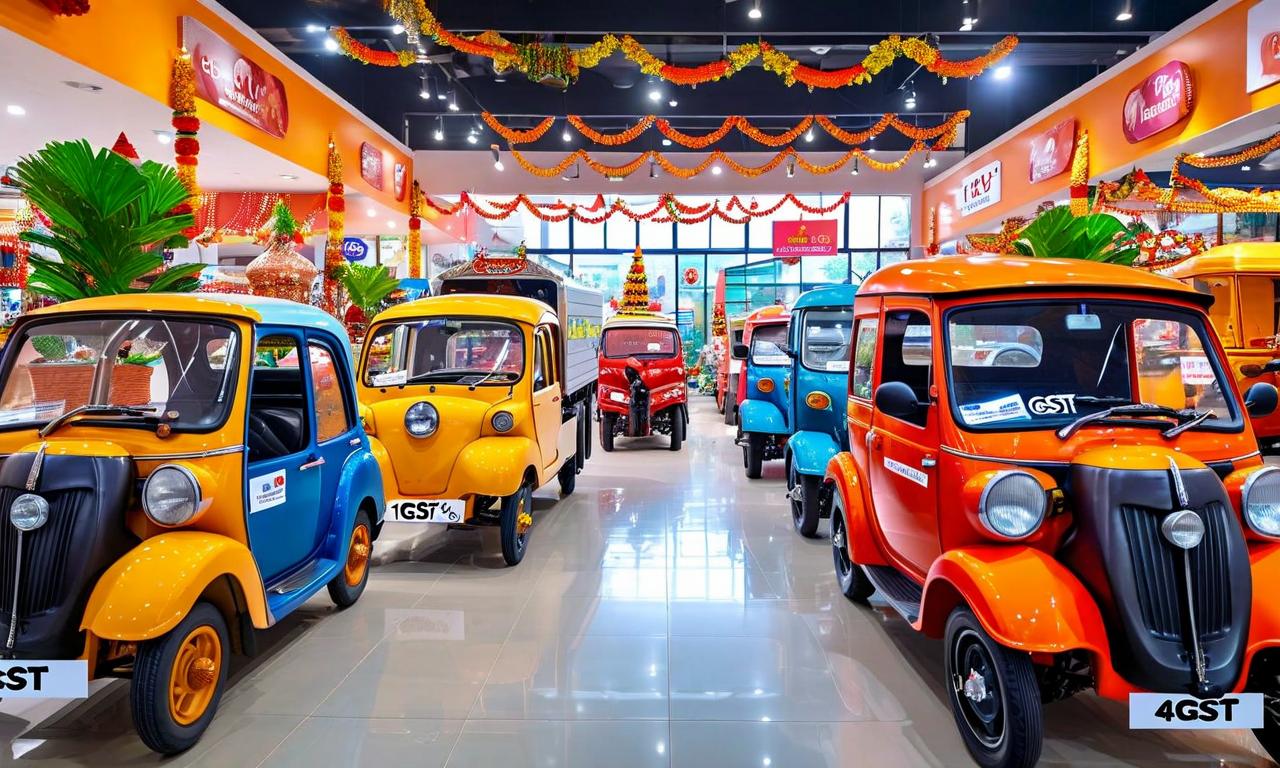GST Rate Cuts Slash SUV Prices, Making Popular Models More Affordable
The GST Council has announced significant tax rate reductions on vehicles, particularly benefiting the SUV segment. Small cars will now have an 18% GST rate, down from 28%. Larger vehicles, including SUVs, will have a flat 40% GST without additional cess, replacing the previous 28% GST plus 15-22% cess. Popular SUV models like Kia Sonet, Tata Harrier, Hyundai Creta, and Skoda Kushaq are seeing price reductions ranging from Rs 65,828 to Rs 1.64 lakh. Kia India plans to pass on the full GST benefit to customers across its entire range. Businesses can now avail full Input Tax Credit. The new tax structure is effective from September 22 and is expected to stimulate demand in the automotive sector, especially in the SUV segment.

*this image is generated using AI for illustrative purposes only.
In a move set to shake up the automotive market, the GST Council has announced significant tax rate reductions on vehicles, particularly benefiting the SUV segment. The new tax structure, effective from September 22, promises to make SUVs more affordable for Indian consumers.
New GST Structure
Under the revised tax regime, small cars will now be subject to an 18% GST rate, down from the previous 28%. For larger vehicles, including SUVs, the tax structure has been simplified to a flat 40% without the additional cess, replacing the earlier system of 28% GST plus a 15-22% compensation cess.
Price Cuts Across Popular SUV Models
The impact of these tax cuts is already visible in the pricing of several popular SUV models:
| Model | Price Reduction (Up to) |
|---|---|
| Kia Sonet | Rs 1.64 lakh |
| Tata Harrier | Rs 1.4 lakh |
| Hyundai Creta | Rs 68,969 |
| Skoda Kushaq | Rs 65,828 |
Hyundai Creta, one of India's bestselling SUVs, sees price reductions ranging from Rs 38,311 to Rs 68,969, depending on the variant. The Kia Sonet, another popular compact SUV, becomes more accessible with price cuts of up to Rs 1.64 lakh.
Manufacturer Response
Kia India has taken a proactive stance, announcing that it will pass on the full GST benefit to customers across its entire vehicle range. This move is likely to boost sales and increase market competitiveness.
Benefits for Businesses
The new GST structure also brings good news for businesses. Companies can now avail full Input Tax Credit, which was previously limited to only the tax component. This change is expected to provide additional financial relief to corporate buyers and fleet operators.
Market Implications
These substantial price reductions are expected to stimulate demand in the automotive sector, particularly in the SUV segment. The timing of this decision, just ahead of the festive season, could lead to a significant uptick in vehicle sales.
The GST Council's decision to reduce tax rates on vehicles represents a major shift in India's automotive taxation policy. As manufacturers adjust their pricing strategies and consumers respond to these changes, the coming months are likely to see increased activity in the SUV market. This move not only makes SUVs more affordable for a broader range of consumers but also has the potential to boost the overall automotive industry in India.




























